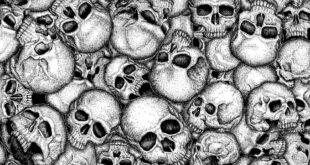Diversity Macht Frei
February 21, 2014

One of the things that always come up in relation to the colonisation of Europe by non-European peoples is the question of hatred. Europeans are constantly accused of feeling hatred for non-Europeans. Even objectively, it seems odd, given that Europeans have gone further in embracing aliens than any other people in history, even allowing them to colonise large parts of their countries without hardly a protest. Any non-European people on earth who had seen their ancestral homeland repopulated by primitive, hostile aliens as a result of what is in effect an elite conspiracy against ordinary folk, would have long ago risen in revolt and massacred the invaders and the elites who brought the in.
In some ways it’s comparable to the issue of slavery. Virtually all societies practised slavery since the dawn of written records. Europe has been the most free of slavery of any major civilisation that we know of and Europeans eventually stamped slavery out (almost) worldwide. So Europeans deserve more moral credit in relation to slavery than any other people does; yet the popular perception, carefully cultivated in propagandistic educational programmes and films like 12 Years a Slave, is exactly the opposite. I have no doubt that many European schoolchildren come out of the school system thinking that the history of slavery and the history of the transatlantic slave trade are one and the same, with maybe something about the Romans thrown in for an extra dash of European guilt. So the people who deserve the most moral credit in relation to a certain issue are, in fact, the ones most heavily blamed.
It strikes me as very likely that Europeans have, at the genetic level, a lowered tendency towards kin group preference than non-European peoples. This is what allowed us to create a civilisation based on objective standards of merit and moral conduct, while the rest of the world was, and still mostly is, sunk in the swamp of corruption and nepotism that results from the ethic of kin group preference being applied at the governmental level. This tendency was what made us, but it is also what is now unmaking us. So we, the people most free of the kin group preference instinct, are the ones accused of harbouring it to the greatest extent.
Even at the subjective level, the accusation doesn’t ring true. What is caricatured as supremacism by the establishment media is, in reality, just separatism: a sense that distinct peoples should live in distinct lands, not that one is superior to others or should lord it over the others. Even though I believe that non-European peoples have had and are having a corrosive effect on European countries, I feel no hatred for them. I simply want them to leave us alone to cherish our own culture and traditions and distinctiveness, including, yes, our genetic distinctiveness, that sense of ancestral connectedness, of life across the generations.
Why, then, does this accusation of hatred always come up? It seems to be the ultimate way of delegitimising and dehumanising an antagonist, to accuse them of being motivated by hatred, as if they were utterly beyond reason. It’s also a way of taking the debate from the objective realm of fact and action, where data can be analysed and conclusions can be reached, to the subjective realm of thought and emotion, what swirls around inside people’s heads, where no definitive conclusions are possible.
But, more than that, it’s also an expression of hatred. I’ve come to realise that when Muslims, negroes, Jews, accuse Europeans of feeling hatred for them, what they are actually doing is expressing their hatred for us. It’s the phenomenon psychiatrists call projection, in which your own feelings are attributed to the Other. In the age of political correctness, it seems the last remaining acceptable way of expressing hatred for another people is to accuse them of feeling hatred for you.
 Daily Stormer The Most Censored Publication in History
Daily Stormer The Most Censored Publication in History


